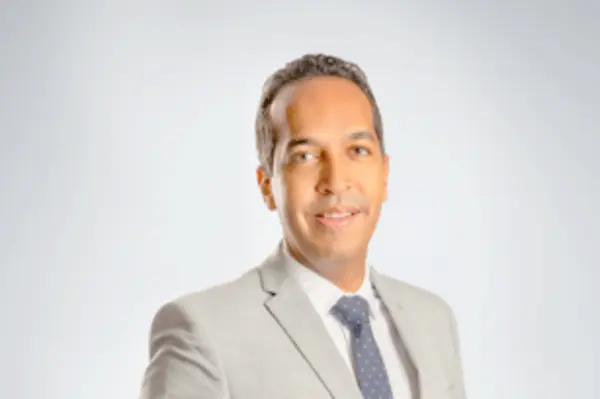Shell has launched its Lube Advisor using wearable technology to customers in the Middle East, enabling them to access Shell’s Advisor services remotely in real time to optimise their lubricants operations. Oil Review Middle East spoke to Haytham Yehia, general manager Shell Middle East, to find out more
Yehia explained that Shell’s desire to continue to support its customers throughout the Covid-19 pandemic was a catalyst for Lube Advisor.
“Here at Shell, we are constantly trying to develop the technologies and innovations to help build a sustainable future, working with our customers, and health and safety is one of the key focuses. That’s one of the reasons why Lube Advisor was born,” said Yehia.
“At the beginning of the pandemic, we wanted to continue to support our customers, while adhering to Covid-19 regulations. Customers operating in remote areas still needed technical support. This wasn’t easy, because of travel and social distancing restrictions.
“Lube Advisor enables the user to conduct a personalised virtual consultation, directly with our technicians and experts, without a physical site visit, removing the complications of travel arrangements and scheduling. At the same time we can also overcome any restrictions from the safety side.
“Once we have the local technical team connected with our customers, we have Shell Lube Advisor using wearable technology sent to them, which enables real time monitoring of field technicians to ensure their safety, while at the same time providing them with audio-visual assistance to perform maintenance services.”
One of the first adopters of wearable technology, Shell is focused on equipping frontline workers in vital sectors with the technology, that allows them to raise notifications, engage with offsite experts for over the shoulder coaching, communicate for status of equipment and tools that will ultimately improve safety efficiency and result in faster, better decision making, all in real time. While the oil and gas sector had been the early adopters, its use is now expanding in the construction, manufacturing and transport sectors as well. In terms of geographical footprint, Shell is rolling out the technology throughout the Middle East, in UAE, Qatar, Bahrain and Kuwait.
Yehia commented that even with the easing of Covid-19 restrictions, the technology is becoming increasingly popular given it saves time and energy, contributing to more efficient operations.
“We are working hand-in-hand with customers, helping them not only with direct usage of lubricants but also with reducing total cost of ownership, in areas ranging from storage and handling to disposal and safety,” Yehia added.
Turning to the base oil and lubricants market, Yehia comments that the industrial lubricants market is expected to continue growing, as is the commercial vehicles market. The market for passenger car motor oil, which is more linked to EVs, presents a mixed picture but is growing fast in Europe as well as in India, China and the Middle East.
Yehia stressed that the EV market is an important one for Shell given its overall vision and strategy to become a net zero emissions energy business by 2050, and to help its customers and society reduce carbon footprint. The company has an extensive range of specialised e-fluids and e-greases which target EVs. Shell has also introduced its carbon neutral portfolio, now available for many of its customers in the Middle East, which offers a more sustainable choice for motor oil without compromising performance and engine protection.
Shell is establishing partnerships to extend the reach of its products and their benefits; Shell Markets Middle East signed an agreement with United Motors and Heavy Equipment to be official distributor for its industrial lubricants in Abu Dhabi. This will allow Shell to meet the increasing demand for high quality lubricants and enhance product accessibility for its growing customer base.
“It’s a good step forward, as with this collaboration we can ensure we can reach different types and sizes of customers, and we can offer them technology and support them with more sustainable products,” commented Yehia. “So we can have bigger impact on society.”







